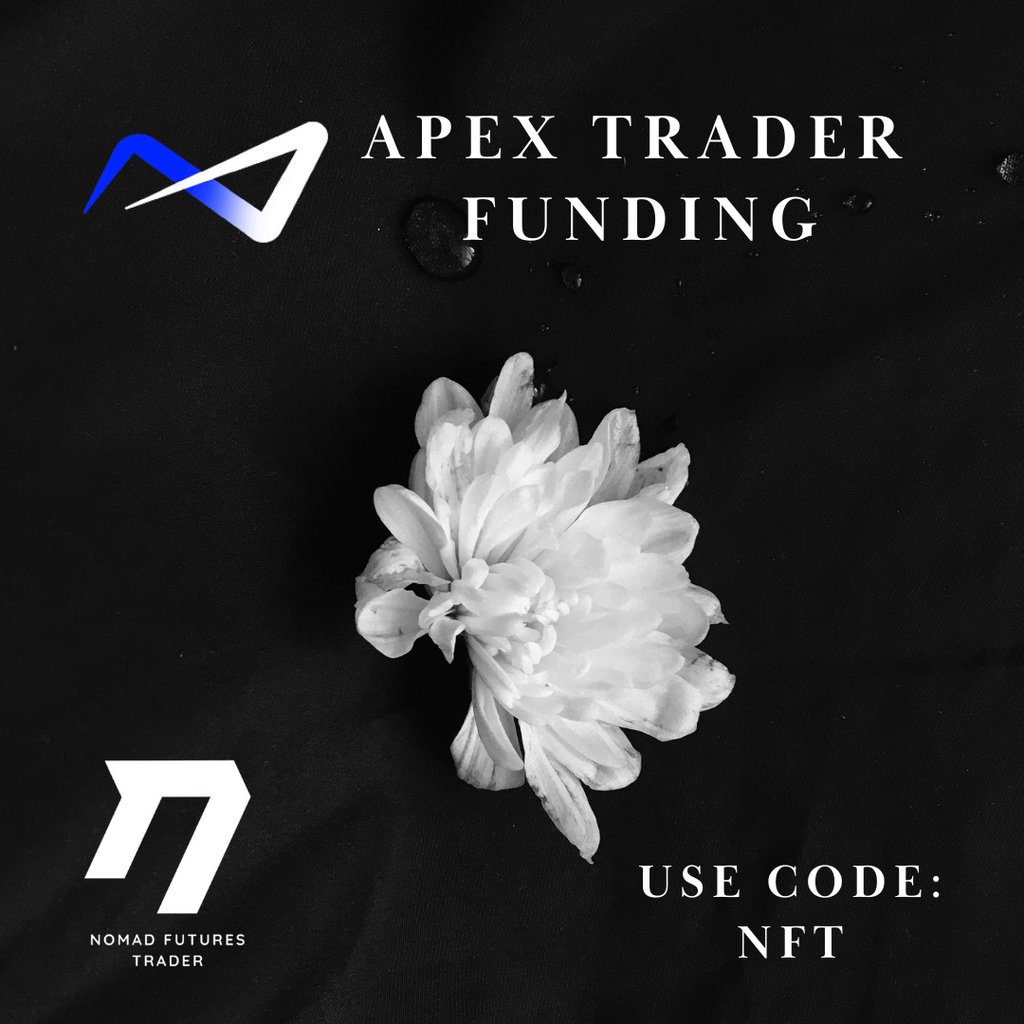
Apex Trader Funding Review: Best Prop Firm for 2025?
Apex Trader Funding Review: Is this the best prop firm for 2025? Get insights on Apex trading, why it's one of the top pick, and how it stacks up against others.
Nomad Futures Trader
12/26/20246 min read
Introduction to Apex Trader Funding
When I first came across Apex Trader Funding, I immediately noticed how different their approach felt compared to other prop firms. They’re all about offering traders real opportunities to access significant funding without the stiff, traditional barriers. What stood out was their flexibility and how they structure their evaluation process.
Here’s what caught my attention:
Low-cost evaluations that don’t drain your wallet.
The option to keep up to 90% of profits, which is huge.
A one-step evaluation process that simplifies things massively.
Unlike prop firms that bury you under endless rules, Apex keeps it simple and trader-friendly.
What is a Prop Firm and How Does it Work?
So, here’s how I see it: a proprietary firm, or “prop firm” for short, is basically a company that backs traders with its own capital instead of having traders use their own. Now, what’s cool about this is that I get to keep a chunk of the profits—usually a significant percentage—while the firm takes on the financial risk.
Here’s the typical process:
Apply and Qualify: I’d usually need to show my trading skills, often through an evaluation phase. This might involve hitting profit targets or sticking to specific rules.
Get Funded: Once I pass, they give me access to their capital for trading.
Key Features of Apex Trader Funding in 2025
When I checked out Apex Trader Funding for 2025, a few standout features caught my attention:
Flexible Accounts: They offer a variety of account sizes, letting you choose one that fits your trading style and budget. From small accounts to larger ones, the versatility is legit.
Recurring Fees: Each account has a 30-day recurring payment. The recurring cost will be waived provided I pass the evaluation within 30 days.
Fast Payouts: Getting paid quickly matters, and Apex delivers. They process payouts efficiently, giving traders access to profits faster. They recently abolished the payout window, which means you can request your payout as soon as you meet the payout criterion.
Trailing Threshold: This is a big deal. The trailing threshold is lifted as soon as I reach the buffer on the performance account, resulting in less restrictions on my trading decisions.
These features make them stand out.
How Apex Trader Funding Stands Out from the Competition
When I first dove into what makes Apex Trader Funding unique, a few key things really stood out. For one, they’ve got zero restrictions on trading styles. Whether I’m into scalping, swing trading, or a mix of both, they don’t impose unnecessary limits—it’s total freedom. Plus, their profit splits are seriously competitive—90% for traders! That’s insane compared to some prop firms that keep a bulky share for themselves.
Another standout is their incredibly fast payouts. I’ve noticed that many firms take weeks, but at Apex, payouts are processed in just days. Also, they offer affordable monthly fees, which makes passing their evaluation process way less intimidating.
Account Types and Pricing Structure Explained
When I first looked into Apex Trader Funding, the variety of account types caught my attention right away. They offer multiple funding tiers, so whether you’re a beginner or a seasoned trader, there’s something that fits. You can choose from:
Evaluation Accounts: These are designed to test your trading skills. Prices start as low as $50/month, scaling up depending on the account size and features.
Performance Accounts: Once you’re funded, these accounts let you trade for real profits. Fees here are minimal but include a small monthly maintenance cost.
I appreciate their straightforward pricing—no hidden fees, just transparency.
Evaluation Process and Requirements for Traders
When I went through the evaluation process, it was pretty straightforward but did require attention to detail. Apex Trader Funding focuses on two key parts: assessing trading consistency and risk management. To get started, I needed to select a funding program that matched my trading style and goals. Here’s how it worked:
Profit Target: I had to hit a specific profit target while staying within the drawdown limits.
Trading Days Requirement: They required me to trade for a minimum number of days, which kept things realistic.
No Restrictions on Strategy: I appreciated the freedom to use any trading strategy—they didn’t limit creativity.
Their rules weren’t excessive, but discipline was still essential!
Pros and Cons of Using Apex Trader Funding
When I think about Apex Trader Funding, there are definitely some standout aspects, but it’s not without its flaws. Here’s how I see it:
Pros:
Low Barrier to Entry: I love how accessible their evaluation programs are. The upfront cost is super reasonable compared to many other prop firms.
Generous Profit Splits: Getting up to 90% of profits is a huge deal—it makes all the hard work feel worth it.
Flexible Rules: Their trading rules aren’t overly restrictive, which feels like they trust you to manage your trades.
No Time Limits: I appreciate the freedom to pass evaluations at my own pace without unnecessary pressure.
Responsive Support: Whenever I’ve had issues, their support team has been quick and helpful.
Cons:
Evaluation Risks: Failing the evaluation can get frustrating and lead to repeated fees.
Scaling Challenges: It’s not always easy to scale up accounts effectively for larger trades.
No Swing Trading: I wish they offered more flexibility for overnight positions.
Market Restrictions: Sometimes, their product range feels limited compared to broader market needs.
It all boils down to what works best for your trading style.
Comparing Apex Trader Funding to Other Prop Firms
When I started digging into prop firms, it became clear that Apex Trader Funding stands out in several ways. First off, their evaluation phase is more trader-friendly. Many prop firms hit you with rigid daily loss limits, but Apex gives a lot more breathing room, which feels less stressful. Also, their payout structure is pretty flexible compared to others—some competitors impose longer waits or stricter rules to withdraw profits.
Another thing I noticed is Apex’s fee structure. While firms like Topstep or FTMO have steeper upfront fees, Apex often runs discounts and promotions, making it more accessible. Plus, Apex’s scaling plans for account growth feel tailored for traders serious about leveling up.
Who is Apex Trader Funding Best Suited For?
I think Apex Trader Funding is perfect for traders who value flexibility and are tired of risking their own capital. If you’ve been looking to level up with access to sizable funding while paying low upfront costs, it’s likely right up your alley.
Tips for Maximizing Success with Apex Trader Funding
When I was diving into Apex Trader Funding, I quickly learned there are a few strategies that can really help make the most of the experience. Here’s what worked for me:
Understand the Rules Inside Out: I made it a point to thoroughly review their guidelines. Knowing things like drawdowns or profit targets helped me avoid costly mistakes.
Start with a Plan: Trading without a solid plan is like flying blind. I outlined my risk tolerance, daily goals, and strategies before placing a single trade.
Leverage Their Resources: Apex offers tools and educational materials. I made sure to watch webinars and use their trading platforms effectively.
Track Your Trades: I kept a journal to analyze what worked and where I struggled. Reviewing daily decisions improved my long-term consistency.
Stay Patient: I reminded myself that success takes time. Focusing on small, consistent wins prevented me from overtrading or chasing losses.
Final Verdict: Is Apex Trader Funding the Best Prop Firm for 2025?
When I look at Apex Trader Funding, a few things immediately stand out. First, their low upfront cost is super appealing, especially compared to many other prop firms. It feels like they’ve really lowered the barriers for traders who want a shot at accessing capital. Second, their generous profit splits—up to 90%!—are a game-changer. That’s the kind of flexibility I would need to feel confident in a partnership.
What also grabbed my attention is their no-expiration evaluation period. I honestly love not having a time crunch to prove myself. Plus, the ability to trade during news events and access to multiple account sizes makes it versatile for traders of all skill sets.
FAQs About Apex Trader Funding
I’ve noticed a lot of people have questions about Apex Trader Funding, so here's a quick breakdown of the most common ones:
What is Apex Trader Funding? It’s a proprietary trading firm that funds traders who meet their evaluation criteria, allowing them to trade futures with company-provided capital.
How much capital can I get funded? This depends on the evaluation account size you choose, ranging from $25,000 to $300,000.
Do they require profit splits? Yes, Apex Trader Funding typically takes a percentage of your profits, but the split is competitive.
Are there monthly fees? Yes, you’ll need to pay a subscription fee during the evaluation phase.
How long does the evaluation last? There’s no time limit, so you can pace yourself.
Check out the Promo Code page for a discount on Prop Firm Challenge.





